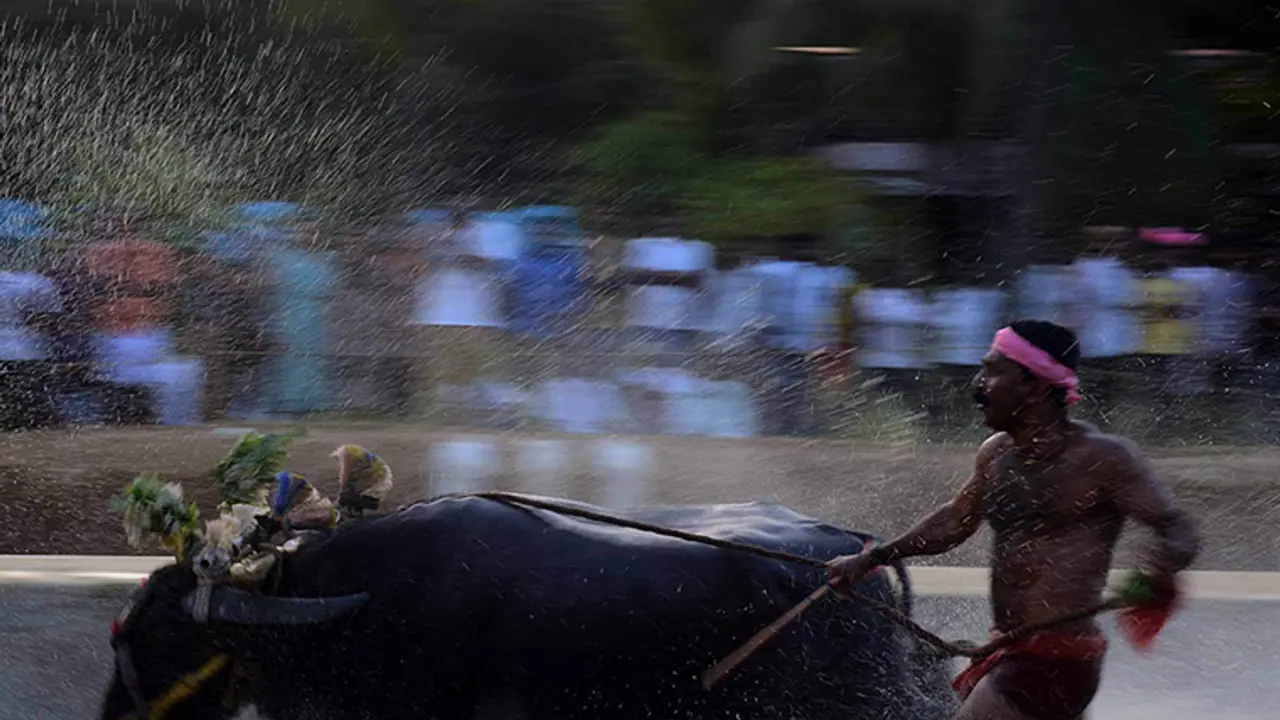The sport is predominantly associated with the Bunt community. Critics say the Bunts are trying to give a broader cultural significance to kambala. The lower castes are hired to take care of the bulls.
Inspired by the protests for jallikattu in Tamil Nadu, groups in Karnataka are also trying to unite the state in the name of kambala, a bull-racing sport popular in coastal regions of Karnataka (Dakshina Kannada and Udupi) and Kerala (Kasargod). Though it is popular only in coastal regions, the protesting groups are portraying kambala as an issue of existential identity.

Its proponents claim that kambala is not a violent sport like bullfighting in Spain or even jallikattu. However, some sociologists say that it hides a regressive aspect — of caste hegemony. Kambala is not a game of the whole village community. Only one particular community, the Bunts, plays it widely. It is also widely propagated in social media that kambala is played in the post-harvest season in leisure time, but the sport is not associated with farmers.
Writer SG Siddaramaiah, chairman of the Kannada Development Authority, says kambala is a game of the “haves” and a conspiracy to gain dominance over the have-nots.
The Bunts, a powerful community of coastal Karnataka, play this game to exhibit their power and are using the latest agitation to give a broader cultural angle to this sport for their own interest. This sport was believed to have been invented by landlords in Tulunadu to gain control over oppressed communities. Some sociologists claim kambala is one of the determining factors in retaining and perpetuating the caste system in coastal Karnataka.
The bulls that are used in kambala are not used in farming. The bunts specially nurture the bulls as a mark of their caste status and prestige. The lower castes — the Billavas, Koragas and Dalits — who work in the farmlands of the feudal lords feed the bulls, bathe, and take care of them. Thus kambala and the bulls used in it serve as an excuse for exploitation of labourers by the feudal lords.
The feudal lord who organises kambala in his village typically orders the Koraga community to prepare the silt ground and maintain it. This practice is called “Pani Kullunu,” in which the Koraga person stays in the silt ground along with his wife and children on the previous night of the kambala festival and sees that competitors of other villages will not intrude and destroy the silt ground. Often before the beginning of kambala, the landlords make the Koragas run in the field to see that the competitors have not kept glass pieces or thorns beneath the silt to harm the bulls.
The Bunt and Jain communities organise kambala in the coastal Karnataka and all the owners of the bulls are Bunts. The lower caste people work in the kambala events only as volunteers. “Kambala is not a game or a cultural event. It is a relic of landlords’ luxury,” Siddaramaiah declares.
